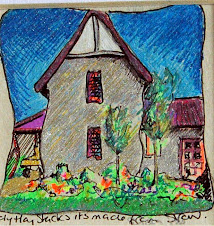
Today we discussed this book - an interesting mix of opinions
Plot Summary
The book has three parts. The first section is an adult Pi Patel’s rumination over his childhood in Pondicherry, a former French Colony in India. The main character, Piscine Patel (shortened to "Pi") talks about his life living as the son of a zookeeper, and speaks at length about animal behavior and religion. Pi investigates Hinduism, Christianity, and Islam and sees merits in all three religions. In the book, Pi stated simply, "I just want to love God."(pg 76 Vintage Canada Edition 2002) Because of the political situation in India, Pi’s father decides to sell the zoo and relocate the family to Canada. In the middle of the Pacific Ocean, the cargo ship on which the family is traveling sinks.
The second part is an allegory in a medieval style. Pi manages to find refuge on a lifeboat, though not alone. He shares the limited space with a female orangutan named Orange Juice, a wounded zebra, a spotted hyena, and a Royal Bengal tiger named Richard Parker. At first Pi believes that Richard Parker has abandoned the boat. He focuses on surviving the hyena. It is not long before the hyena begins to feed on the zebra. After the zebra's death, the hyena kills the orangutan, after which Pi approaches it. It is then that he notices that Richard Parker has been resting under a tarpaulin and has been aboard the lifeboat the entire time.
The tiger kills and eats the hyena, but does not immediately attack Pi. The young man manages to construct a raft using supplies aboard the boat, and avoids direct confrontation with Richard Parker by keeping out of the tiger's territory on the deck. Pi eventually marks his own territory by using his knowledge of zoology, and comes to an accommodation with Richard Parker. Pi reasons that while the tiger is healthy, he poses less of a threat, as an injured or hungry beast is more dangerous. Therefore keeping the tiger alive becomes his primary focus. Pi catches fish and turtles, and uses solar stills to obtain drinkable water for them both.
During a storm, Pi's raft is destroyed. The young man is forced to climb aboard the lifeboat. He loses his store of food and most of his fresh water. At this point, due to poor diet, nutrition, and weakness, Pi goes temporarily blind. During this state he meets another castaway on a boat traveling parallel with his own. The other man has a French accent. After a period of amicable conversation, he boards Pi's boat. As soon as the man boards, however, Richard Parker kills and devours him. Soon after, the duo wash ashore upon a strange island of vegetation, populated by meerkats, and containing pools of fresh water. After some time, Pi finds a strange tree on the island. When he examines the fruit, he finds it contains human teeth. He realizes that the island is carnivorous, and he and the tiger must leave immediately. Their lifeboat finally washes up on the beach in Mexico. Richard Parker bounds off into the jungle, and the tiger is never to be seen again.
Here begins the third part of the story. After Pi is rescued and taken to a hospital, two men representing the Japanese Ministry of Transport interrogate and quiz him to find out why the ship sank. Pi offers his story. That does not satisfy the Japanese, and they dismiss it as a fantasy. Pi then offers an alternative explanation. He said he was on board the lifeboat with three other people: his mother, the ship's French chef, and a wounded sailor. The chef first killed and ate the sailor, then brutally killed Pi's mother. After that, Pi killed and ate the chef. Pi asks the men from the shipping company which story they prefer, who respond that they liked the first tale more.
The novel ends with the ministry representatives' report to the Japanese government, in which the two men tell Pi's first story.
Yann Martel
Yann Martel is a Canadian author who won the Man Booker Prize for Fiction award for his novel Life of Pi. On November 11, 2002, in an interview with PBS,[2] Martel revealed his inspiration and motives for his novel. He said, "I was sort of looking for a story, not only with a small ‘s’ but sort of with a capital ‘S’ – something that would direct my life." He spoke of being lonely in his life and needing direction in his life. This novel became that direction and purpose for his life.
For More information on the author click on any of these wiki links
NewsHour Online Conversation with Yann Martel
How I wrote Life of Pi by Yann Martel
YouTube interview "People are better for being less reasonable"
YouTube audio interview "I suspect most people will read this book and say this is an allegory"
Jennie Renton Interview textualities.net "Life is a story. You can choose your story. A story with God is the better story."
Guardian Q&A "I wanted to push the reader till he/she was forced to make some leap of faith. (About the Island.)"
Interview on Radio Praha Interpretations of reality
Book reviews
The Guardian review by Justine Jordan "Animal magnetism"
Salon.com review by Suzy Hansen "A preposterous but utterly enchanting story."
London Review of Books "Credulity"
BBC News Entertainment "Philosophical Pi misses the mark"
Dan Schneider at Hack Writers "where the hell was a competent editor?"

No comments:
Post a Comment